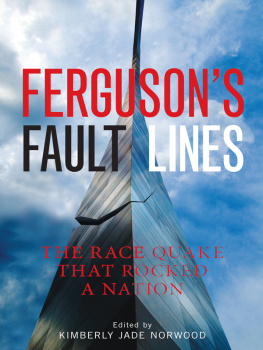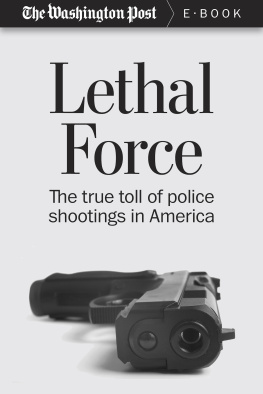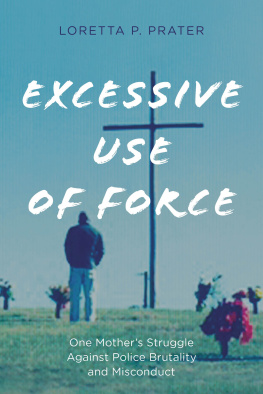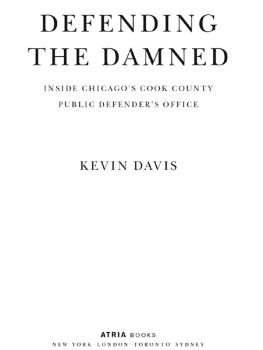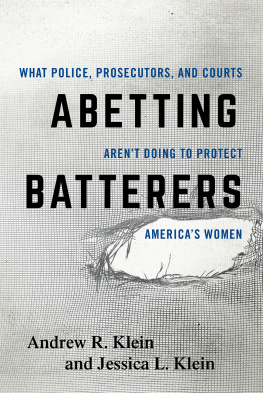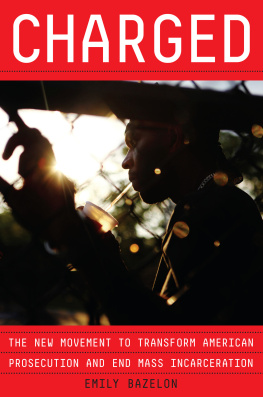FERGUSONS FAULT LINES
THE RACE QUAKE THAT ROCKED A NATION
Edited by
KIMBERLY JADE NORWOOD
Cover design by Elmarie Jara
The materials contained herein represent the opinions of the authors and/or the editors, and should not be construed to be the views or opinions of the law firms or companies with whom such persons are in partnership with, associated with, or employed by, nor of the American Bar Association or the Section of State and Local Government Law unless adopted pursuant to the bylaws of the Association.
Nothing contained in this book is to be considered as the rendering of legal advice for specific cases, and readers are responsible for obtaining such advice from their own legal counsel. This book is intended for educational and informational purposes only.
2016 American Bar Association. All rights reserved.
No part of this publication may be reproduced, stored in a retrieval system, or transmitted in any form or by any means, electronic, mechanical, photocopying, recording, or otherwise, without the prior written permission of the publisher. For permission contact the ABA Copyrights & Contracts Department, .
Cataloging-in-Publication Data is on file with the Library of Congress.
Names: Norwood, Kimberly Jade, editor.
Title: Fergusons fault lines : the race quake that rocked a nation / edited by Kimberly Jade Norwood.
Description: First edition. | Chicago : American Bar Association, [2016]
e-ISBN: 978-1-63425-373-4
Identifiers: LCCN 2016011068 | Subjects: LCSH: Discrimination in criminal justice administrationMissouriFerguson. | Discrimination in criminal justice administrationUnited States. | Police misconductMissouriFerguson. | Police misconductUnited States. | Race discriminationUnited States. | RacismUnited States. | United StatesRace relations.
Classification: LCC HV9956.F47 F47 2016 | DDC 363.2/308996073077865dc23
LC record available at http://lccn.loc.gov/2016011068
Discounts are available for books ordered in bulk. Special consideration is given to state bars, CLE programs, and other bar-related organizations. Inquire at Book Publishing, ABA Publishing, American Bar Association, 321 N. Clark Street, Chicago, Illinois 60654-7598.
www.ShopABA.org
Contents
Chapter 1: Michael Brown, Dignity, and Dj Vu: From Slavery to Ferguson and Beyond
Christopher Alan Bracey
Chapter 2: The Psychology of Racial Violence
L. Song Richardson and Phillip Atiba Goff
Chapter 3: The Prosecution, the Grand Jury, and the Decision Not to Charge
Katherine Goldwasser
Chapter 4: St Louis County Municipal Courts, For-Profit Policing, and the Road to Reforms
Thomas Harvey and Brendan Roediger
Chapter 5: Making Ferguson: Segregation and Uneven Development in St Louis and St Louis County
Colin Gordon
Chapter 6: From Brown to Brown: Sixty-Plus Years of Separately Unequal Public Education
Kimberly Jade Norwood
Chapter 7: If Michael Brown Were Alive, Would He Be Employable?
Terry Smith
Chapter 8: The Geography of Inequality: A Public Health Context for Ferguson and the St Louis Region
Jason Q. Purnell
Chapter 9: Media Framing in Black and White: The Construction of Black Male Identity
Candice Norwood
Chapter 10: Psychic Pain: Residents, Protesters, Police, and Community
Kira Hudson Banks and Vetta L. Sanders Thompson
Chapter 11: Ferguson and the First Amendment
Chad Flanders
Chapter 12: The Uncertain Hope of Body Cameras
Howard M. Wasserman
Chapter 13: Policing in the 21st Century
Tracey L. Meares
Preface
Kimberly Jade Norwood
In the months following the eruption in Ferguson, my youngest, then a sophomore in a predominately white public high school, found herself at the center of debates at school dealing with the fallout from the death of Michael Brown. The debates included: the framing of the issues by the media in black versus white, the policing of black and poor communities by law enforcement officers, poverty, looting, rioting and the color and face of crime as portrayed in the media, the identity of the black male narrative, and the relevance of black life, whether and how it matters. She was blindsided by the racial division, turmoil, hate, and anger displayed throughout the media and even in her environment. She did not know what to do, how to respond, what to feel. As part of an effort to begin a process of understanding and thus healing, she wrote a poem, subsequently published in our local newspaper. It is reproduced below.
This book expands upon the innocence raised in that poem in provoactive ways. The information conveyed in this work is designed to push readers to ask of themselves the very questions raised therein with a commitment to seeing the challenges our nation faces as revealed in the aftermath of Michael Browns death and to committing to work towards the eradication of the barriers of injustice reflected herein. This book is full of hard questions we all must ask of ourselves and of others, soul searching we all must do, and brutal honesty we all must face. Race is still an issue and while uncomfortable to discuss, can no longer be ignored. We have to figure out what to do and what to say. The future of our society depends on it.
What Do You Say?
Veronica Jade Norwood
What do you say when you have so much shame for your country and so many emotions race through your mind that the words you search for are never found?
What do you say when your heart aches so much that you dont even know if you can make it through the night?
What do you say when youre trying to get people to listen to you and then realize they hear your words but they just dont care?
What do you say to your community to get them to see that instead of helping justice prevail theyre destroying our homes and dreams instead?
What do you say to them to make them see the hypocritical actions of fighting for justice by destroying businesses to get that message through?
What do you say to a nation that allows hate crimes to still be an issue, while they say they will make changes but never do?
What do you say to your children when you have to explain to them whether a person was shot because of the color of his skin?
What do you say to someone who is not conscious enough, to make them see that racism does in fact still exist?
What do you say to someone who has been a victim of this hatred when the comforting words of It will get better surely feels like it never will?
What do you say to those who treat this stuff as a joke, or dont even acknowledge that this is an issue?
What do you say to someone who doesnt understand integrity or refuses to accept equality?
What do you say about those issues to the people in power, when they are the ones causing them?
What do you say when you dont even know how to feel safe in your own city, in your own country?
What do you say when youre ashamed of yourself, for not doing everything you possibly can to make this country a safer place for all man- and woman-kind?
What do you say to bring change?
What do you say?.

.
Acknowledgments
The idea for this project began in the winter of 2014. A year later, the project was completed. The commitment and dedication of many people allowed this to happen. My husband, Ronald Alan Norwood, is owed a very special thank you. His editing, patience, support, insights, manifold reviews of this work were phenomenal.
My administrative assistants, Beverly Owens and Jane Box and several law school library staff members: Hyla Bondareff, Mark Kloempken, and Kathie Molyneaux were indispensable in helping me complete this work. A special thank you to them, as well.

